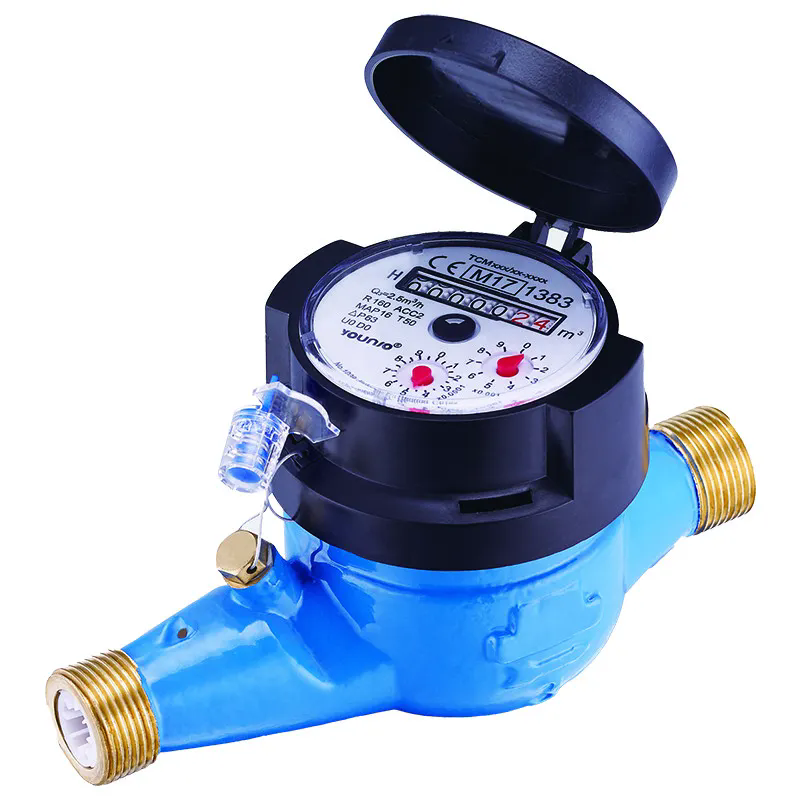Why Are Water Meters Crucial for Efficient Water Management?
2024-12-11
Water is one of our most vital resources, and managing its usage is becoming increasingly important. In both residential and commercial settings, water meters play a crucial role in ensuring that water is used efficiently, fairly, and sustainably. But why are these devices so essential, and what role do they play in water management systems?
1. What Is a Water Meter?
A water meter is a device used to measure the volume of water that passes through a specific point in a system, typically from a water supply to a consumer. It is commonly installed at the entry point of a home or business to track the amount of water used, often for billing purposes.
2. How Do Water Meters Work?
Water meters work by measuring the flow of water through the meter and recording the volume used. The design of the meter typically consists of a rotating element (like a wheel or turbine) that turns as water flows through it. The number of rotations is then converted into a reading of water consumption. More advanced meters, such as smart meters, can track usage in real-time and provide additional data such as pressure or flow rate.
3. Where Are Water Meters Used?
Water meters are widely used in various sectors, including:
- Residential: To monitor water usage for households and ensure accurate billing.
- Commercial: For businesses, to track water consumption and manage costs.
- Industrial: To monitor water usage in factories and plants, helping to detect leaks or inefficiencies.
- Municipal Water Systems: To gauge overall water distribution and manage supply across communities.
4. Why Are Water Meters Important?
Water meters provide several key benefits:
- Efficient Water Usage: By tracking water consumption, meters encourage responsible usage, helping to conserve water and reduce waste.
- Accurate Billing: Meters ensure that customers are charged only for the water they actually use, eliminating guesswork and disputes over utility bills.
- Leak Detection: Unusual readings can help identify leaks in pipes, saving both water and money on repairs.
- Sustainability: By monitoring consumption patterns, water meters contribute to the sustainable management of water resources, which is critical as freshwater supplies become increasingly scarce.
5. How Do Water Meters Benefit the Environment?
Water meters play a vital role in environmental sustainability. With accurate data on water usage, communities and businesses can better understand their consumption habits and identify opportunities for conservation. Reducing water waste can have a significant impact on reducing the strain on local water sources and ecosystems.
6. What Types of Water Meters Are Available?
There are several types of water meters, each suited to different applications:
- Mechanical Water Meters: These are the most common type and use moving parts to measure water flow.
- Electronic Water Meters: These meters use digital technology for more precise measurement and can integrate with smart water systems.
- Ultrasonic Water Meters: These meters use sound waves to measure water flow, providing highly accurate readings without moving parts.
- Smart Water Meters: These are advanced meters that provide real-time data via remote monitoring, offering more insights into water usage and enabling automatic leak detection.
7. What Challenges Do Water Meters Face?
While water meters are crucial for efficient water management, they are not without challenges:
- Maintenance: Mechanical meters may require periodic maintenance to ensure accurate readings, especially in areas with hard water.
- Accuracy: Older or poorly maintained meters can become inaccurate over time, leading to incorrect billing or missed detection of leaks.
- Cost of Installation: For some properties, especially older buildings, the installation of water meters can be costly, particularly if upgrades are required.
8. How Are Water Meters Evolving with Technology?
In recent years, water meters have become smarter and more connected. Modern smart meters allow for real-time monitoring and can be accessed remotely, making it easier for utility companies to track usage and detect problems. These meters can also provide detailed insights into consumption patterns, allowing for more efficient water management and quicker response times to issues like leaks.
Water meters are much more than just tools for measuring consumption; they are key components in managing one of the world’s most valuable resources. Whether for personal use or in a broader municipal or industrial context, they help ensure that water is used efficiently, accurately, and sustainably.



